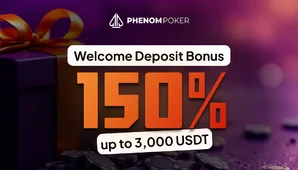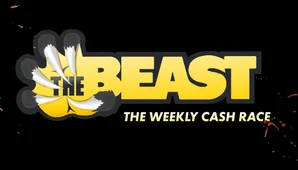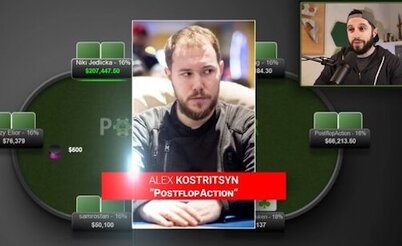As you may remember, my first appearance on High Stakes Poker ended with me getting kicked out. And when I came the second time... it would have been better if they kicked me out!
A couple of years have passed. I had already become more or less famous, won my first bracelet – and now I was invited again.
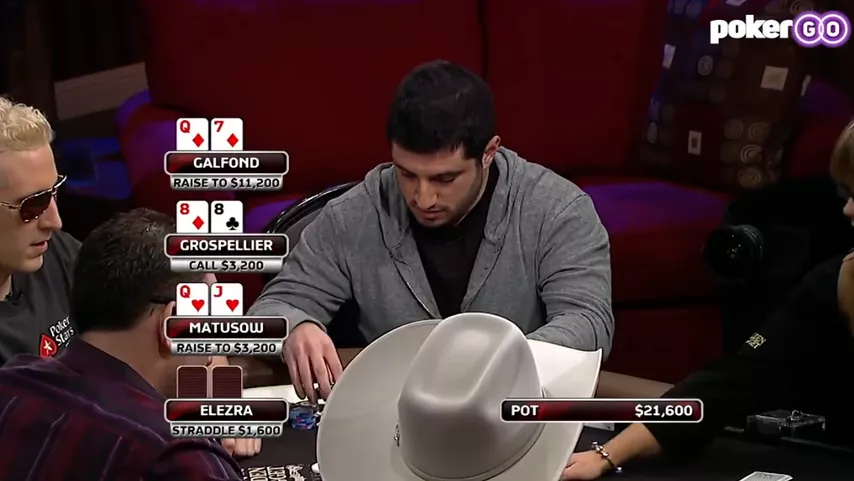
In this hand, I immediately begin to push the boundaries of what is permitted. Eli bets the $1,600 straddle, Mike Matusow mini-raises to $3,200 from early position, Elky calls and I decide to squeeze $11,000 with . Elezra cold calls with ATo. Matusow, seeing such action, folds his QJs, and Elky calls with eights. Of the four of us, he was the only one who made no mistakes pre-flop.
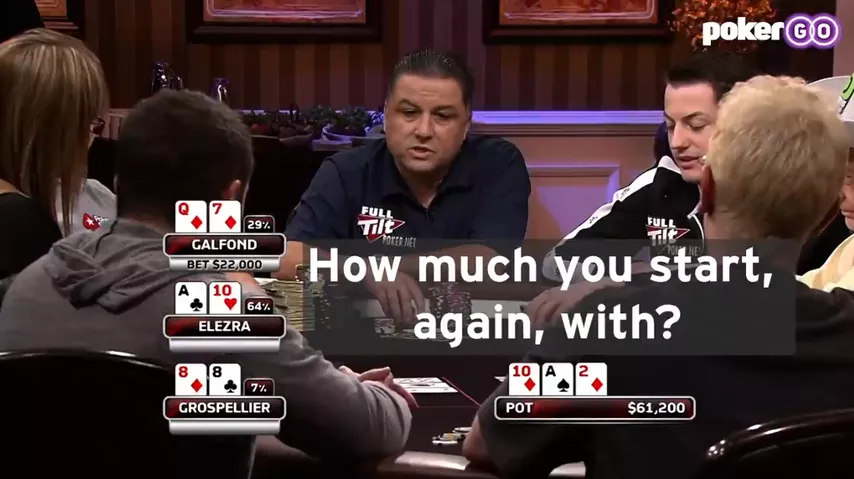
I see a flush draw on the flop and c-bet $22,000 into the pot for $39,200, a little over half the pot. The sizing is perhaps too big, but not entirely illogical.
Elezra decides not to slowplay his top two pair and immediately raises big.
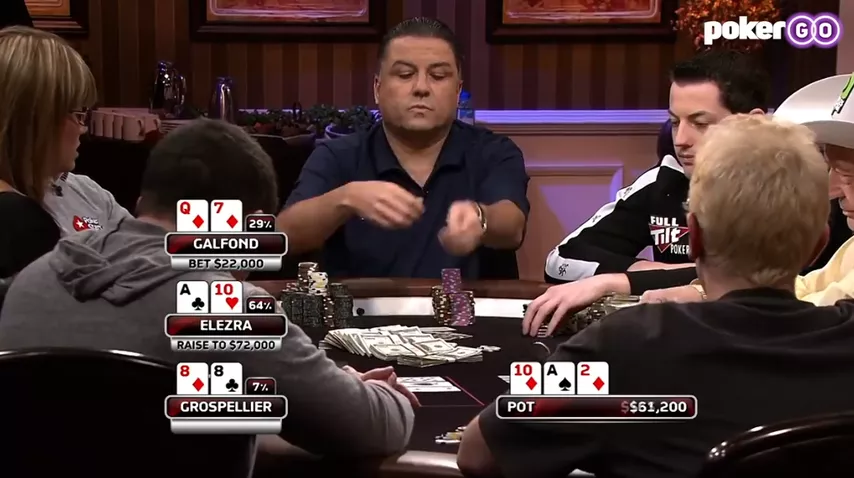
Elky folds his eights, and I have to decide if I want to continue fighting for the pot, and if so, how exactly. I don't believe going all in here will work often enough. In addition to other strong value hands, I might have no outs against . But calling doesn’t seem comfortable either, since the ratio of stack to pot on the turn will be about one. On the other hand, we have too much equity to fold the flop. I concluded that I needed to call.
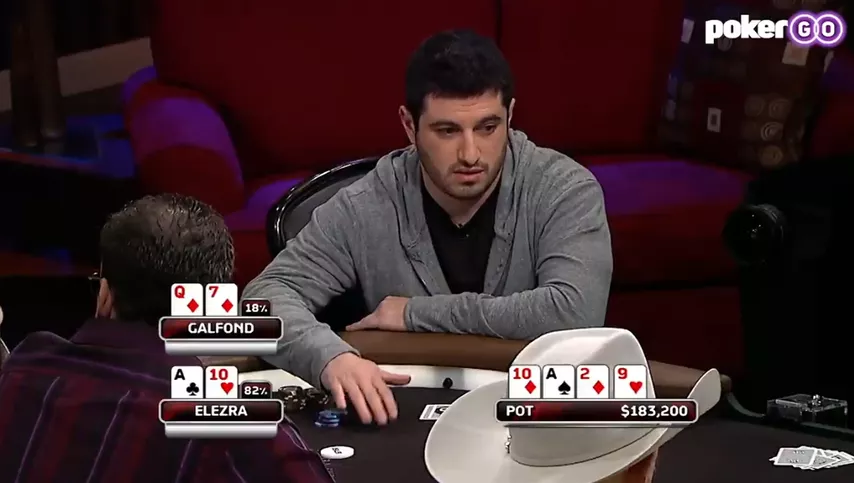
I checked, and Eli pushed all in. I have 18% equity against almost all of his hands. The pot odds are two to one; the call loses money. There is nothing to do – I threw it away.
Now I have a stronger hand. GGPoker pro Daniel Negreanu straddles, Elezra raises big, Benjamin calls, and I squeeze again.
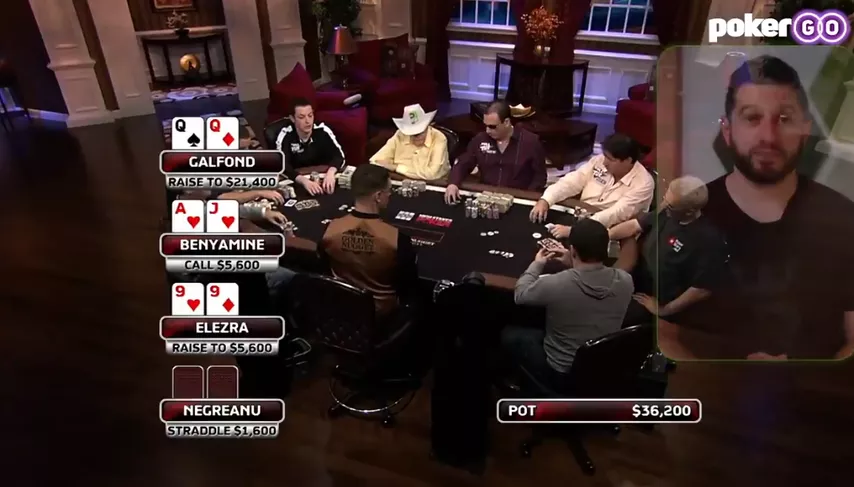
Both players call and I'm very pleased given my image and the strength of my hand. My joy ends when the dealer flops an ace.
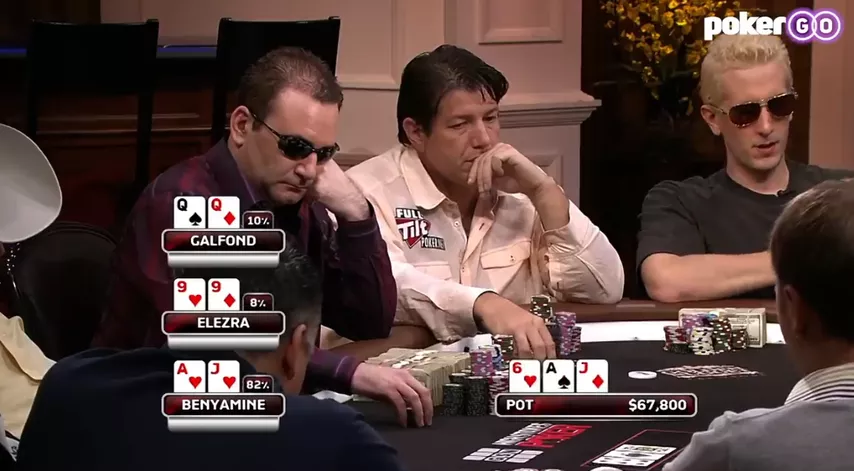
Unfortunately, this is a very poor texture for pocket queens against my opponents' ranges. I still make a continuation bet, and quite a big one, $32,200 – almost half the pot. This is almost certainly a mistake. Checking is very logical, and if I want to c-bet queens at all, the sizing should be significantly smaller. But the hand was played in the pre-solver era when none of us knew the correct sizing and optimal strategy with different hands.
Eli folds and Benjamin raises with two top pair to $92,200. This seems very suspicious to me, and I clearly don't want to fold, but I still find the right solution and give up.
The active game isn't working yet, but I'm not taking my foot off the gas. I defend the big blind with QTo against Lex's raise and check-raise on the flop with three spades.
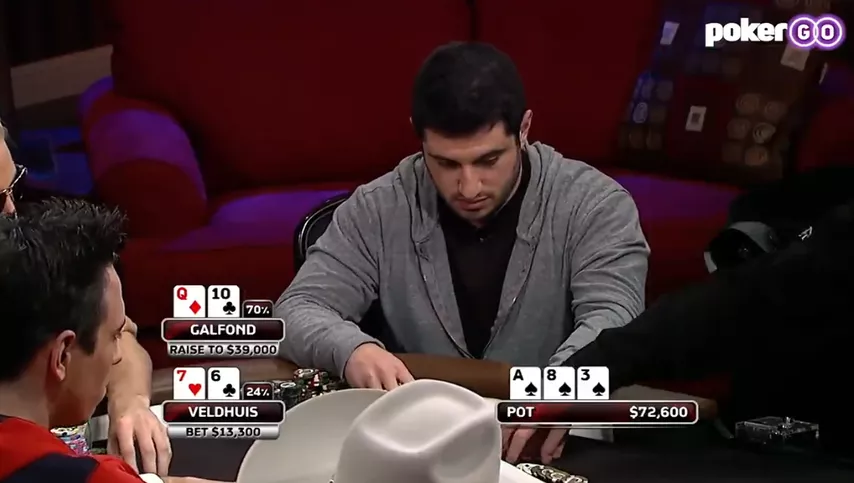
Between you and me, I have no idea why I played that way. This is frankly wild and completely non-standard. Maybe I had some reads, but at that time I wasn’t really into tells and didn’t have much experience in live play. Apparently, it was aggression for the sake of aggression itself. Fortunately, Lex had absolutely nothing, he folded, and my move worked.
And in the next hand, in which I was up against Negreanu, I continued to attack.
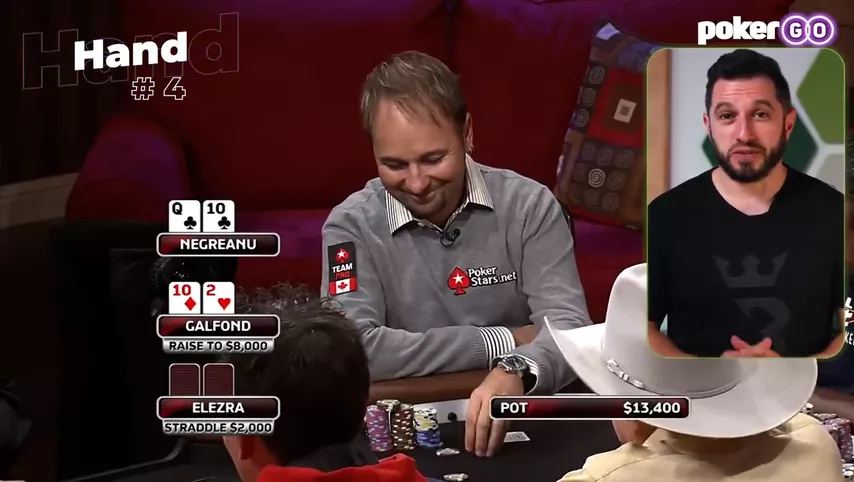
I raise with a terrible hand, T2o. This is no coincidence: Doyle Brunson, the godfather of poker, is at the table, and I want to impress him.
I get two calls.
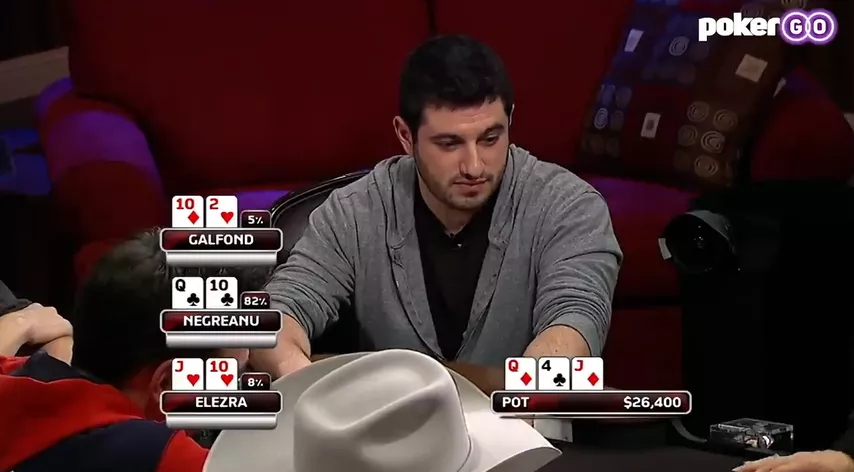
I have absolutely nothing on the flop, but I continue to attack anyway and c-bet $14,000, about half the pot. Negreanu calls, andEli Elezra wisely gets out of the way with second pair.
Turn ($54,400):
The eight gives me a gutshot – for the first time in the hand, I have some equity. However, Daniel, as you can see, has a real monster: top pair, flush draw, and gutshot. I decide to check, which makes sense: on a board with so many different draws, you can't barrel every gutshot.
Negreanu bets $30,000 and for some inexplicable reason I check-raise.
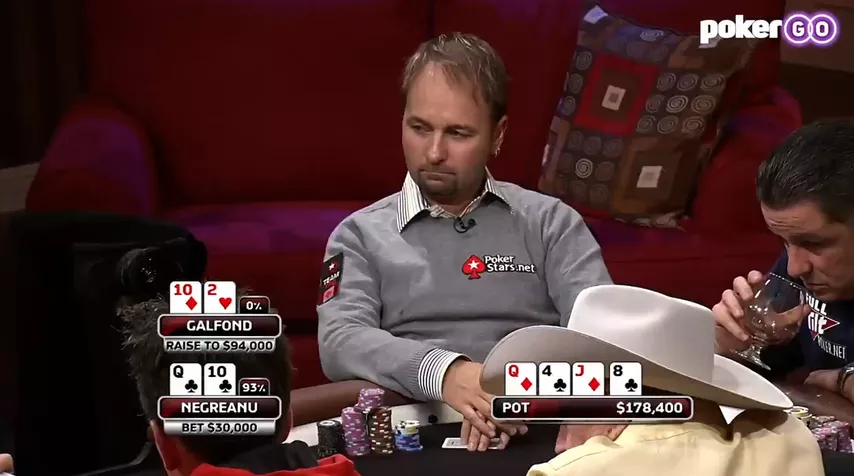
Of course, I admit that Negreanu could bet the turn to defend with , , , and my check-raise is very unpleasant for such hands – they need to be folded. However, on such a board he will have a lot of strong draws that will continue anyway, as well as strong made hands – do not forget that he called on the flop without closing the action with another player behind him, which narrows his range. My line is again aggression for the sake of aggression, and I do not advise doing this.
If he had called, I would probably bet again on the blank river – without any clubs in my hand, it should be quite profitable to bluff. Could Daniel just call with top pair? We won't know: he moved all-in.
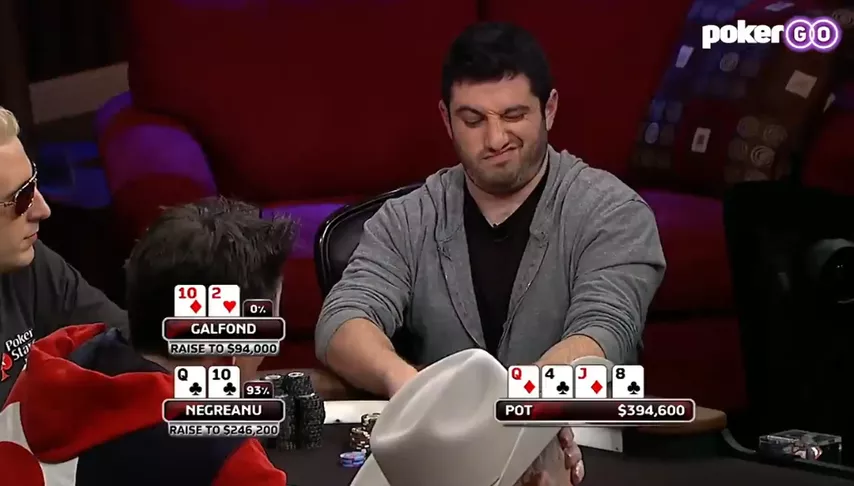
Of course, I didn't always bet without a hand. Unfortunately, in those hands where I collected strong combinations, my opponents often had nothing.
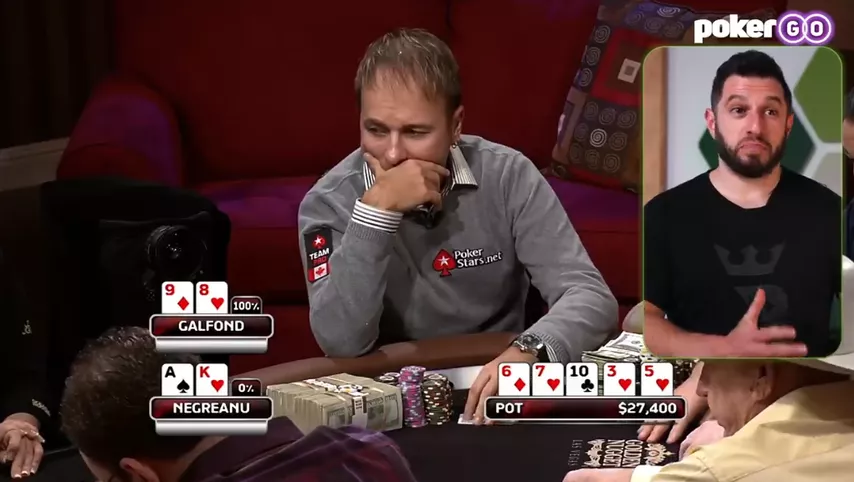
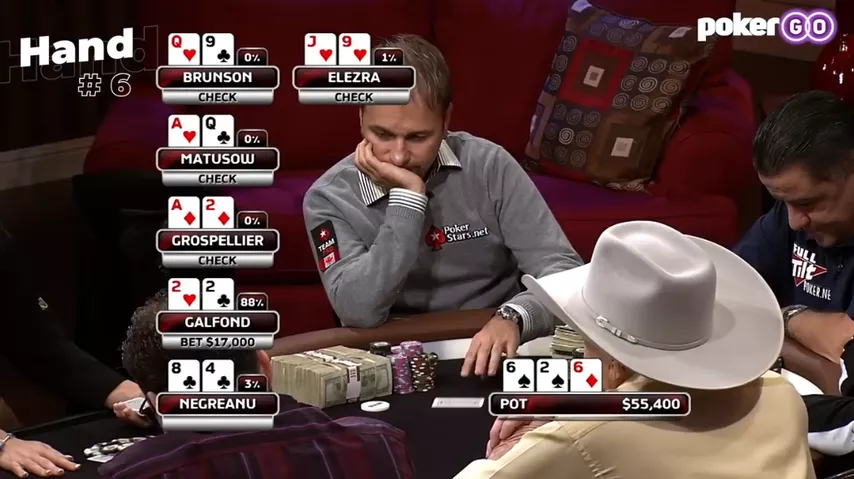
With weaker hands, I regularly found myself in difficult situations.
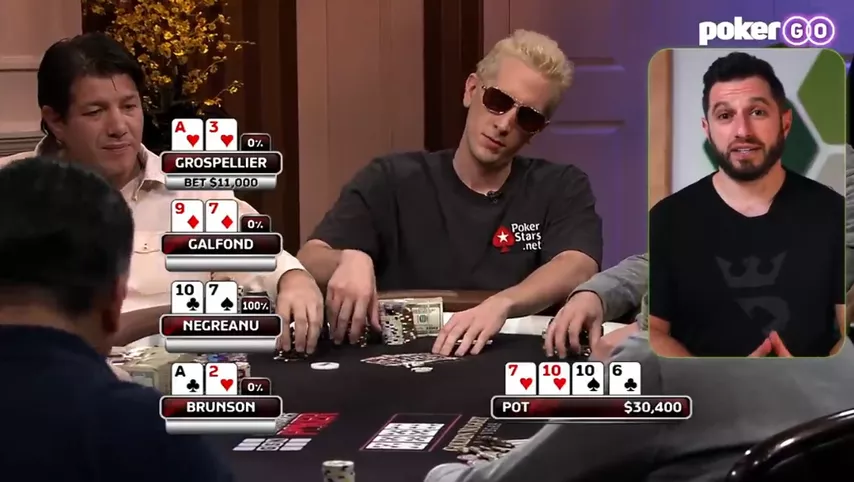
In this hand, we checked the flop and Elky bets $11,000 on the turn. I have two pair and a gutshot, and even though there are two other players behind me, I decide to call. Daniel Negreanu flopped the nuts and raised to $41,000. Since he may have a lot of draws, after Elky folded, I chose to call.
There is already more than $100,000 in the pot on the river.
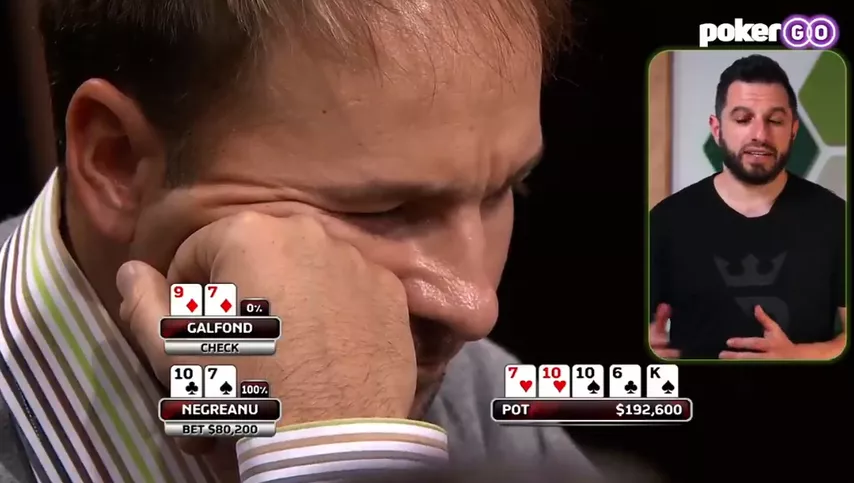
The river didn't change anything: if Daniel was bluffing on the turn, he was unlikely to improve. Moreover, a draw with a king does not go well with such a large sizing.
I thought about his actions again. He didn't bet the flop, which reduces the number of combinations in his range. He raised on the turn to represent a strong hand, but he may well have flush draws, including combo draws. Any hand with an eight and a nine on this texture is a gutshot and can be used as a bluff. Even if Daniel bluffs with them very rarely, there are so many of them that the total number of bluffs will still be significant.
In general, I decided to call. Despite the bad result, I don't think I made a mistake.
Next hand I 3-bet with a hand that shouldn't be played.
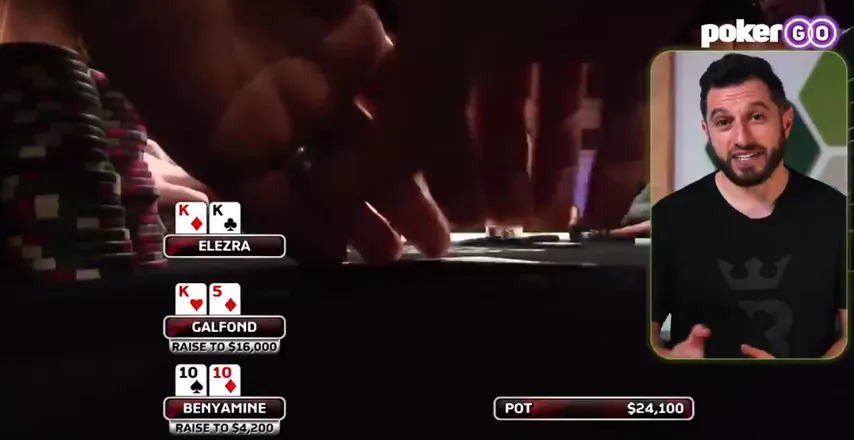
Elezra finds kings and bumps it up to $40,000. Everyone else folded. With K5o it's a very easy fold, but that Phil was confident he could outplay his opponents post-flop and burned some money by calling.
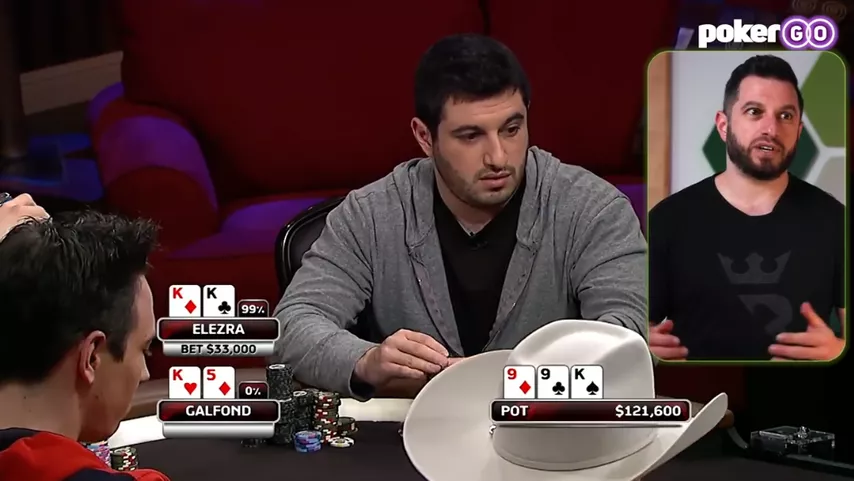
Elezra catches the best full house and makes a small continuation bet, apparently afraid of scaring me off. I put him on bluffs with , , or careful testing with , . I make a call.
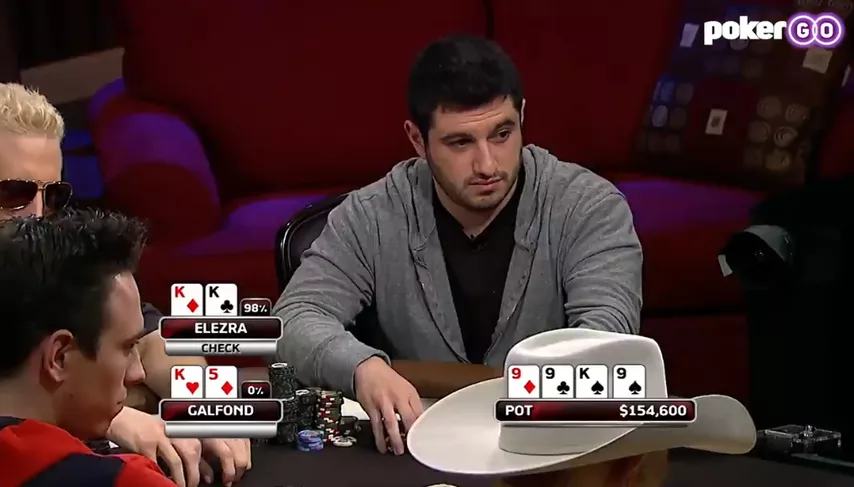
Eli checks and I decide to check next. Against and I chop. If he has queens or jacks, I'll get my value on the river. If he bluffed on the flop and folded on the turn, I want to give him another chance to bluff on the river. Maybe he'll put me on , or a gutshot! In general, my check is a trap.
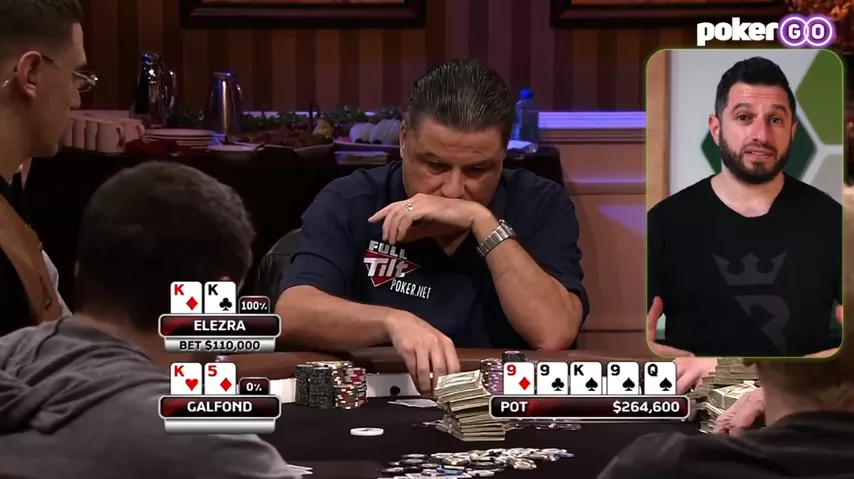
The queen on the river is a bad card. If Elezra had queens, his full house now beats mine. I'm still losing and . Overall I'm behind the strong and narrow range he depicted preflop. However, I still chop with and , and also beat bluffs.
I have a difficult decision against his bet. He's definitely capable of bluffing, but he also has plenty of made hands that beat me. However, for some reason, my intuition tells me that he could have queens or aces there.
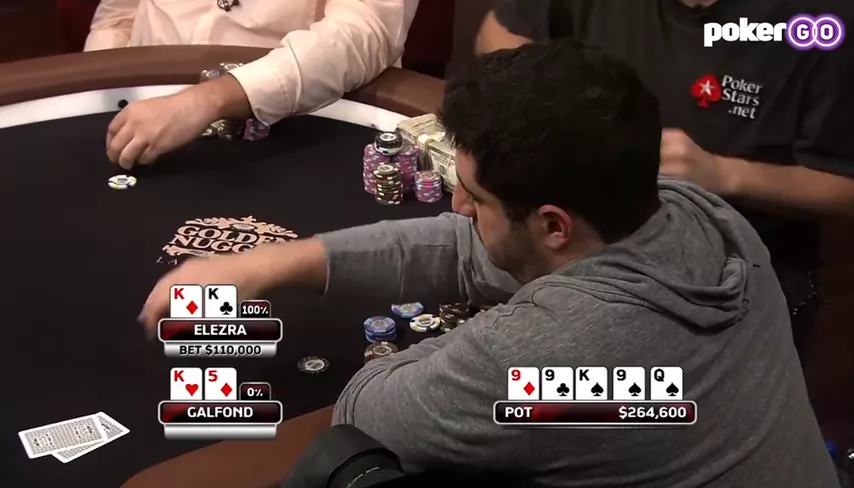
I still managed to throw it out – old Phil had something to be proud of! Although preflop, where he gave away $40,000 with K5o, there was little reason to be proud of.
Overall, when I came to High Stakes Poker for the second time, I was much more active than on my debut day, but I lost $431,800. Is there anything I would like to change? In general, yes – I don’t like some hands at all. However, I approve of the overall approach: I played aggressively, ambitiously and trusted my intuition.
It didn’t go well for me, but thanks to the action created and a big loss, I was invited to the show again. But we'll talk about the third visit in the next video! Take care of yourself.











